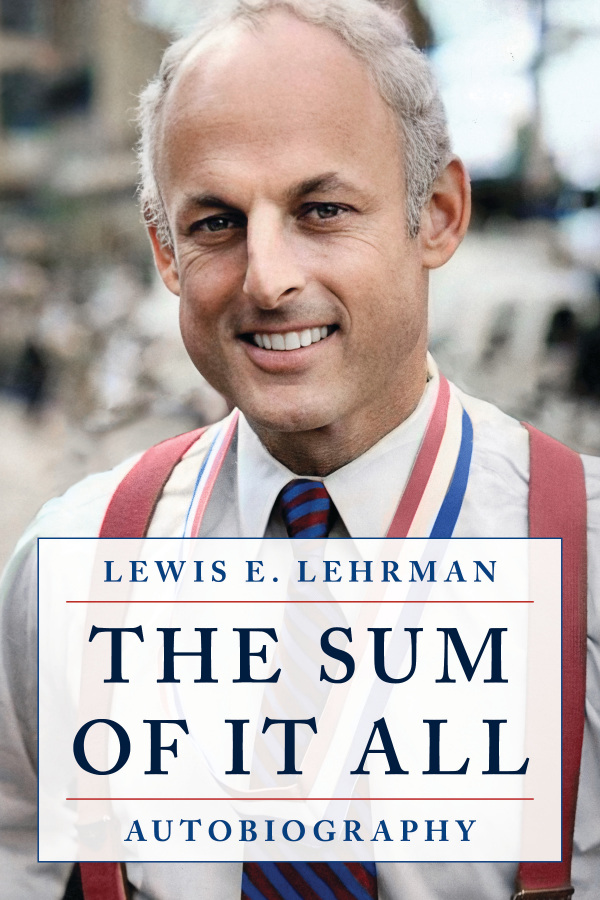
The Sum of It All
“Like many of you, I was a lucky grandson of four immigrant grandparents – as I was born in America. My immigrant grandfather Louis was a peddler – and a patriot, who believed, with the religious founders of our country, that America was the New Jerusalem…”
From humble roots in Harrisburg, Pennsylvania, Lehrman is the grandson of immigrants. He excelled as a Yale scholar, then grew the family business into a national company. He advised President Reagan on economic and monetary policy and ran for governor of New York. Lehrman is recognized for founding, with Richard Gilder, the Gilder Lehrman Institute of American History. Gilder Lehrman endows the Lincoln Prize; oversees and publicizes a significant collection of American historical documents and artifacts; and serves students, teachers, and scholars nationwide. In 2005, Lehrman received the National Humanities Medal for his groundbreaking work in history and education.
In this intimate autobiography, Lehrman gives vibrant portraits of and reflections on family life, business success, political leadership, historical enterprise, and his faith journey. Clearly written chapters focus on life’s key questions. Interviews, recollections, and photographs introduce Lehrman’s many influential partners and associates. Family, friends, and colleagues share touching stories. Correspondence with scholars, economists, and statesmen combine with archival material from Lehrman’s campaigns, books, and foundations.
With a direct and unmistakable style, Lehrman reveals himself from many angles, making his wide experience available to all. With its triumphs, achievements, and sometimes unexpected choices, this is the story of a man on a mission. Early in life he made the faith of the early American founders and of Abraham Lincoln his own, and he has worked throughout his life to embrace, celebrate, and protect the American Dream so that all people might share in its success as he has.
In a richly documented life story, Lehrman celebrates the contributions of family, friends, partners, and colleagues. But he saves his highest praise for his marriage to Louise, whom he first met after “walking west on East 80th Street” in New York City and without whom—as he never tires of saying—none of it would have been possible.
Lewis Lehrman is the exemplary American leader of his generation. Now he recounts his heroic life of intellect, enterprise, family, and faith, summoning all ensuing generations—at this moment—to the battlements of a historic vision and legacy.
George Gilder, author of Wealth and Poverty
What a life Lew Lehrman has led. And what a story he tells. Scholar, entrepreneur, politician, philanthropist, financier, farmer, author, husband, father, and grandfather, he is the contemporary American that—I am going to venture a speculation—Alexander Hamilton would be proudest of.
James Grant, founder and editor, Grant’s Interest Rate Observer
This is the story of a life well lived, and an intelligent paean to the conditions that can make such lives possible. It is a story, finally, of gratitude—towards all who worked alongside him—and humility—before the heart searchings and insights of those who inspired and guided him.
Richard Brookhiser, Senior Editor, National Review
The Sum of It All is now available through Rowman & Littlefield, Amazon, and Barnes & Noble.
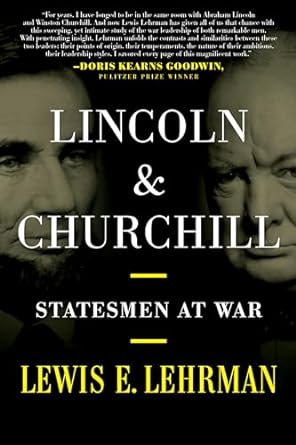
Lincoln and Churchill:
Statesmen at War
Lewis E. Lehrman’s eloquent, thorough study of Lincoln’s first oratorical masterpiece makes a major new contribution to Lincoln studies. Until now there has been no study of the magnificent 1854 Peoria speech, in which Lincoln made his debut as a spokesman for the antislavery cause. Those who do know the Peoria speech will gain a fuller appreciation of its context and the significance from this beautifully written, well-documented study. – Michael Burlingame, author of Abraham Lincoln: A Life
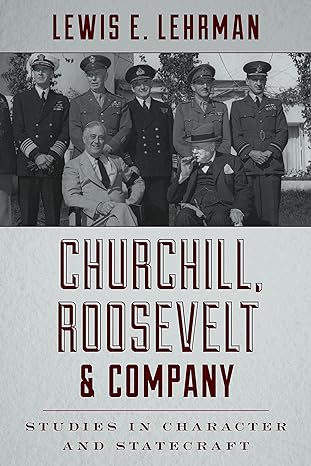
Churchill, Roosevelt & Company:
Studies in Character and Statecraft
Lewis E. Lehrman’s arresting and deeply researched study of the Anglo-American alliance during the Second World War brilliantly establishes how Roosevelt and Churchill sometimes willing to use back channels and bypass conventional diplomatic authority found and relied on the right people to smooth relations between the two countries. Rich in historical immediacy, Churchill, Roosevelt & Company demonstrates how generals, diplomats, spies, businessmen, economists, and other key figures served the needs of both Prime Minister and President in their unyielding defense of democratic government. Not least, the book delivers a powerful reminder of the contingent role of human interaction and personal chemistry in determining the course of historical events. – Prof. Richard Carwardine, Rhodes Professor of American History at Oxford University
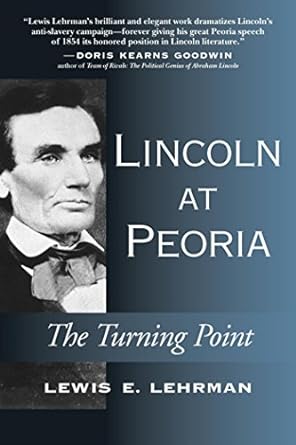
Lincoln at Peoria:
The Turning Point
Lewis E. Lehrman’s arresting and deeply researched study of the Anglo-American alliance during the Second World War brilliantly establishes how Roosevelt and Churchill-sometimes willing to use back channels and bypass conventional diplomatic authority-found and relied on the right people to smooth relations between the two countries. Rich in historical immediacy, Churchill, Roosevelt & Company demonstrates how generals, diplomats, spies, businessmen, economists, and other key figures served the needs of both Prime Minister and President in their unyielding defense of democratic government. Not least, the book delivers a powerful reminder of the contingent role of human interaction and personal chemistry in determining the course of historical events. – Prof. Richard Carwardine, Rhodes Professor of American History at Oxford University
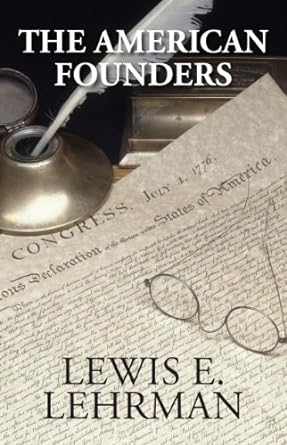
The American Founders
The Founders knew that their citizens and their government colleagues were imperfect. The Founders themselves were imperfect. In an imperfect world of imperfect people it could not be otherwise. Indeed, they could be petty. With the hindsight of the historian, their decisions may appear questionable. The Founders could be pessimistic about democracy. “Public affairs go on pretty much as usual: perpetual chicanery and rather more personal abuse than there used to be,” wrote John Adams to Thomas Jefferson only weeks before they died. “Our American Chivalry is the worst in the world. It has no Laws, no bounds, no definitions; it seems to be all a Caprice.”
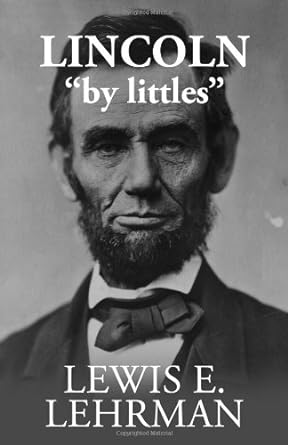
Lincoln ‘by littles’
Excerpts from Lincoln ‘by littles’
“Abraham Lincoln seldom got the chance to go to school. He went to school ‘by littles,’ he said, and received fewer “In the untrammeled interior of the mind s eye, young Lincoln followed his unrestrained desire to explore new intellectual worlds, even the world of American history, of politics, of law. There, in the frictionless world of thought and fantasy, young Abraham Lincoln found the freedom, the vocation, the solace he yearned for, unshackled from the irremediable, unrequited, hard labor of farmer and village artisan.”
“Mr. Lincoln made American politics not only a struggle for personal power and prestige, but instead, a campaign of just ideas, a battle of first principles, a vindication of right-minded policy.”
“The self-tutored lawyer from Illinois could not understand those ‘don’t care’ politicians, such as Senator Stephen A. Douglas, who pretended indifference to involuntary servitude.”
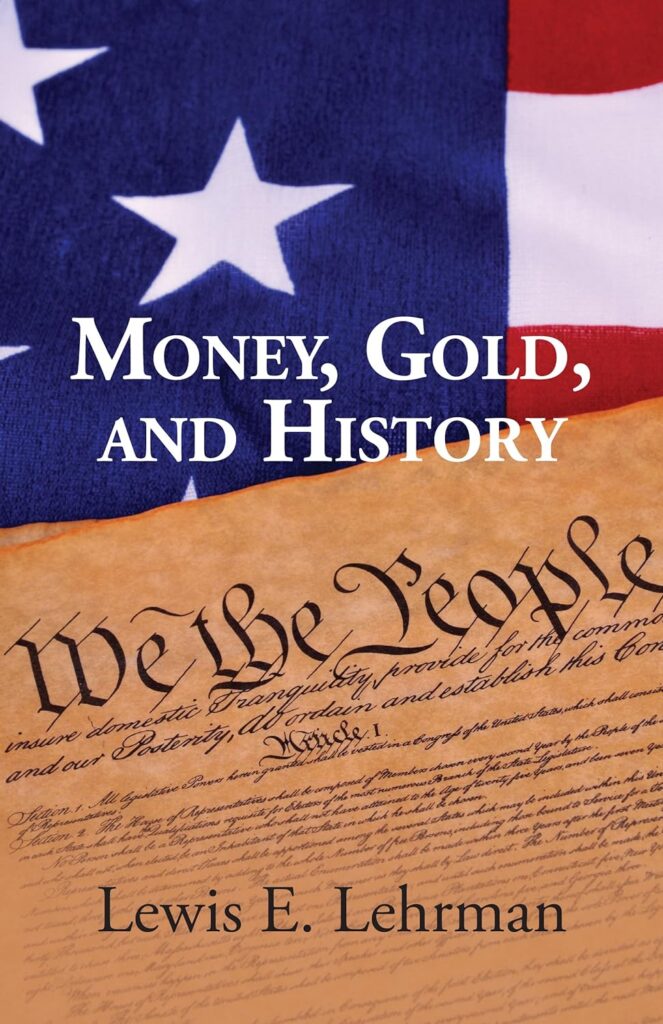
Money, Gold, and History
In Money, Gold, and History, Lewis E. Lehrman raises three questions:
1) Will the perennial global monetary crisis and the century-old age of inflation still be underway a generation from now?
2) Will the global economy have succumbed to national rivalries, mercantilism, financial disorder, and entropy?
3) Or, will monetary order have been restored by the leading nations of the world in their own self-interest?
The solution is authorized by the United States Constitution in Article I, Sections 8 and 10 whereby the control of the quantity of dollars in circulation is entrusted to the hands of the people because the definition of the dollar was entrusted to Congress. In 1792, Congress defined by statute the dollar as a specific weight unit of precious metal.
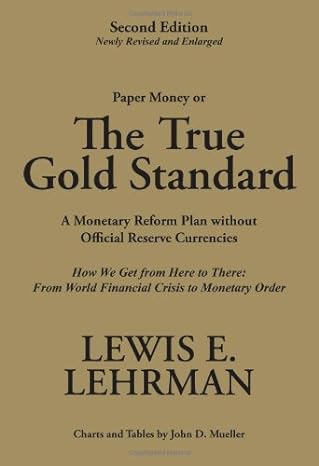
The True Gold Standard:
A Monetary Reform Plan without Official Reserve Currencies
In the Newly Revised and Enlarged Second Edition There are a few lessons to take away. One lesson of this book is that, contrary to conventional academic opinion, the quantity of money in circulation is not the problem. The problem of monetary disorder is how money is issued. A second lesson of this book is the pernicious falsehood, spread worldwide, by the trendy quotation drawn from John Maynard In the long run we are all dead. Such indifference or cynicism towards future generations may characterize a few self-centered individuals. But throughout the world, for parents and grandparents and most individuals, the long-run common good is an essential preoccupation of every generation sharing the human condition and its hope for the future. A third lesson of this book is that there is a time-tested way out of the present world financial crisis. This Monetary Reform Plan proposes to establish the framework for an enduring, stable value for the United States dollar; that is, to define the dollar by statute as a certain weight unit of gold to be coined into lawful money.
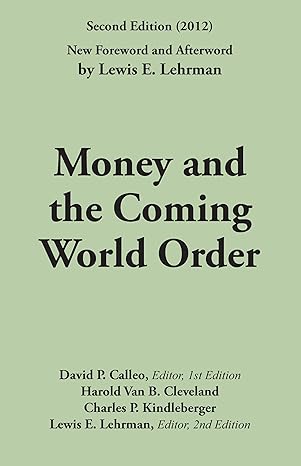
Money and the Coming World Order
“Today, national economic policy making is largely concerned with the problems of unemployment and inflation. More precisely, it is their simultaneous combination in nearly all Western economies which preoccupies policy makers. As these problems grow worse, the stakes rise higher. We know that either severe unemployment or sustained inflation, let alone both together, can be expected to have the most serious consequences for liberal democracy.”
Almost four decades ago, during America’s worst economic period since the Great Depression, I wrote the words above in the first edition of this book (1976). Now, in 2012, one is tempted to quote the inimitable Yogi Berra: “this is déjà vu all over again.”
Thus, the questions arise: Will the perennial global monetary crisis and the century-old age of inflation be underway forty years from now? Will the global economy have succumbed to national rivalries, mercantilism, currency wars, financial disorder and entropy? Or, will monetary order have been restored by the leading nations of the world – in their own self-interest? The passage of almost forty years has not changed my mind; there is a necessary and sufficient solution to the problem of financial disorder. My conviction has only grown deeper that American and world prosperity depend on monetary reform, Federal Reserve reform, and restoration of international monetary order. American public and private finances have been sustained during the past generation by running down the immense capital laid up for us by centuries of frugal, enterprising forbearers. This liquidation of national capital for current, unrestrained, consumption may have a long, but finite life. The endgame is financial reform or national bankruptcy. National bankruptcy or its equivalent (systemic currency depreciation) is not inevitable. Monetary reform, led by America, is still plausible, especially because monetary reform has again become a national political issue.